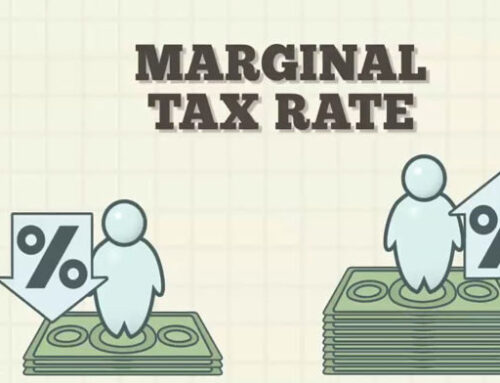In an increasingly complex and uncertain business landscape, the value of assurance services cannot be overstated. In this blog post, we will explore the value of assurance how assurance engagements play a crucial role in building trust and confidence among stakeholders.
Value of Assurance: Ensuring Transparency and Accountability
Assurance services contribute to the transparency and accountability of organizations. By providing independent assessments of financial and non-financial information, these engagements instill confidence in stakeholders, fostering a culture of trust and integrity.

Mitigating Risks and Enhancing Decision-Making:
Assurance services help identify potential risks and weaknesses in a company’s operations. This risk identification enables management to take proactive measures to address vulnerabilities, ultimately supporting sound decision-making and strategic planning.
Strengthening Investor Confidence:
Investors place great importance on reliable financial information. Through financial statement audits and other assurance services, investors gain confidence in the accuracy of financial reporting, leading to increased trust in the organization.
Demonstrating Corporate Social Responsibility:
Sustainability reporting and assurance engagements play a vital role in demonstrating corporate social responsibility. Companies that voluntarily undergo sustainability assurance show their commitment to environmental, social, and governance (ESG) principles.
Compliance and Regulatory Confidence:
Assurance engagements, such as compliance audits, reassure regulatory authorities that businesses are adhering to relevant laws and regulations. This compliance fosters positive relationships with regulators and reduces the risk of penalties.

Assurance services add significant value by building trust, mitigating risks, and enhancing decision-making in an uncertain world. By ensuring transparency, strengthening investor confidence, demonstrating corporate social responsibility, and ensuring compliance with regulations, organizations can leverage the power of assurance to create a sustainable and successful business environment.
In today’s rapidly changing and complex business environment, trust is a precious commodity. It’s the foundation of successful relationships between individuals, organizations, and the public. Assurance services play a pivotal role in building and maintaining this trust by providing independent and objective evaluations of various aspects of operations, reporting, and compliance. In this blog post, we’ll explore the value of assurance and how it contributes to building trust in an uncertain world.
Also Read: Are Gifts To Customers And Business Associates Deductible Expenses?
Defining Assurance Services
Assurance services encompass a wide range of activities aimed at evaluating and enhancing the reliability, credibility, and transparency of information and processes within organizations. These services are typically provided by qualified professionals, such as auditors, to offer assurance to stakeholders that certain standards, criteria, or regulations are being met. The value of assurance services extends across various domains:
1. Financial Reporting
The most recognized form of assurance is financial statement audits. Independent auditors review a company’s financial statements to ensure they accurately represent its financial position and performance. Investors, creditors, and regulators rely on these audits to make informed decisions and maintain confidence in the financial markets.
2. Cybersecurity and Data Privacy
In an era of increasing cyber threats and data breaches, value of assurance engagements in cybersecurity and data privacy have become paramount. Independent assessments of an organization’s cybersecurity measures and data protection practices help ensure the security of sensitive information and compliance with data privacy regulations.
3. Sustainability Reporting
As sustainability and environmental responsibility gain prominence, value of assurance on sustainability reports is sought after. Assurance providers verify the accuracy of sustainability data, reinforcing a company’s commitment to sustainable practices and building trust with stakeholders who value transparency in corporate sustainability efforts.
4. Regulatory Compliance
Assurance services help organizations comply with industry-specific regulations and reporting requirements. This ensures that companies adhere to legal and ethical standards, reducing the risk of legal penalties and reputational damage.
5. Internal Control Systems
Assurance engagements evaluate the effectiveness of internal controls within an organization. This is critical in identifying and rectifying weaknesses that may lead to fraud, operational inefficiencies, or financial misstatements.

The Value of Assurance in an Uncertain World
- Risk Mitigation: Assurance engagements identify risks and weaknesses, allowing organizations to mitigate potential threats. By addressing vulnerabilities, companies can safeguard their assets, operations, and reputation.
- Transparency and Accountability: Assurance provides transparency, demonstrating an organization’s commitment to ethical practices and responsible reporting. This accountability fosters trust among stakeholders.
- Data-Driven Decision-Making: Reliable information verified through assurance services enables data-driven decision-making. Businesses can make informed choices regarding investments, strategies, and compliance.
- Competitive Advantage: Organizations that can demonstrate their commitment to integrity, security, and transparency through assurance services gain a competitive advantage. This can attract customers, investors, and partners.
- Enhanced Reputation: A reputation for transparency and reliability is invaluable. Assurance helps build and preserve a positive image, which is crucial for attracting and retaining stakeholders.
In an uncertain world where trust is paramount, assurance services are a linchpin for organizations striving to build and maintain confidence among stakeholders. Whether it’s in financial reporting, data security, sustainability, or regulatory compliance, the value of assurance extends across diverse domains value of assurance. By investing in assurance, organizations not only mitigate risks and enhance transparency but also fortify their reputation and competitive position in a rapidly changing and interconnected global landscape. As we navigate an uncertain world, assurance services continue to play an indispensable role in fostering trust and confidence in the decisions and actions of businesses and institutions alike.
In a world characterized by uncertainty and rapid change, trust is more valuable than ever. Whether it’s in our personal relationships or in the business realm, trust forms the bedrock of our interactions and decisions. For businesses, building and maintaining trust is not just a matter of ethics; it’s a strategic imperative. In this blog post, we will explore the importance of value of assurance in building trust in today’s uncertain world.
The Concept of Assurance
Assurance, in the context of business and finance, refers to the process of providing confidence and certainty in the accuracy and reliability of information. It is the mechanism through which organizations demonstrate their commitment to transparency, accountability, and ethical conduct. Value of assurance encompasses various activities, including financial audits, internal controls assessments, and compliance verification, all aimed at validating that an organization is operating in accordance with established standards and regulations.
Why Assurance Matters
- Trust and Credibility: Trust is the foundation of any successful business relationship, be it with customers, investors, or stakeholders. When an organization provides assurance through transparent and reliable reporting, it instills confidence and credibility in its operations, value of assurance, strengthening its relationships with key stakeholders.
- Risk Mitigation: In an uncertain world, businesses face a multitude of risks, both internal and external. Assurance processes help identify and manage these risks, ensuring that the organization is well-prepared to navigate challenges. By addressing vulnerabilities and weaknesses proactively, assurance can prevent potential crises.
- Compliance and Regulatory Adherence: Regulatory bodies and industry standards require organizations to adhere to specific rules and guidelines. Assurance activities, such as compliance audits, confirm that these obligations are met. This not only ensures legal compliance but also demonstrates a commitment to ethical conduct.
- Decision-Making: In an age of information overload, decision-makers rely on assurance reports to make informed choices. Assurance provides an objective assessment of an organization’s financial health, operational efficiency, and risk exposure, enabling better decision-making.
- Competitive Advantage: Organizations that embrace assurance as a fundamental part of their culture gain a competitive advantage. Trustworthy brands attract customers, investors, and top talent. They also experience fewer disruptions due to scandals or crises.

Assurance in Practice
Assurance encompasses various practices and processes, each tailored to specific aspects of an organization’s operations:
- Financial Audits: External auditors examine an organization’s financial statements to ensure accuracy and compliance with accounting standards. This process is crucial for reassuring investors and creditors.
- Internal Controls: Organizations establish internal control systems to safeguard assets, ensure financial accuracy, and prevent fraud. Assurance professionals assess the effectiveness of these controls.
- Compliance Audits: These audits verify that an organization complies with legal and regulatory requirements, such as tax codes, environmental regulations, and industry standards.
- Cybersecurity Assurance: In an increasingly digital world, assurance extends to ensuring the security of data and information systems. Cybersecurity audits assess an organization’s readiness to combat cyber threats.
- Sustainability Reporting: Assurance extends beyond financial matters to include environmental, social, and governance (ESG) factors. Independent verification of ESG reporting builds trust with stakeholders interested in an organization’s sustainability efforts.
Conclusion
In an era characterized by uncertainty, trust is a prized commodity. Assurance serves as the vehicle through which organizations can build and maintain that trust, providing confidence and credibility in an increasingly complex business world. By embracing assurance as a fundamental part of their operations, value of assurance, organizations not only mitigate risks and ensure compliance but also gain a competitive edge in a world where trust is paramount. In the end, the value of assurance extends far beyond financial numbers; it’s about securing the trust that is essential for success in an uncertain world.
Recent Posts
FAQ
What does a company's decision to voluntarily undergo sustainability assurance indicate?
A company's decision to voluntarily undergo sustainability assurance indicates its commitment to environmental, social, and governance (ESG) principles.



